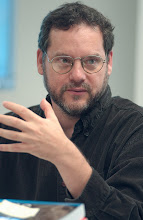Nice Organizing Win in Maine!
 The following guest post is by Brian Hiatt, a graduate of Antioch University's Environmental Advocacy and Organizing Program (EAOP) and an organizer with the League of Young Voters in Portland, Maine. This post was originally posted on the DMI Blog.
The following guest post is by Brian Hiatt, a graduate of Antioch University's Environmental Advocacy and Organizing Program (EAOP) and an organizer with the League of Young Voters in Portland, Maine. This post was originally posted on the DMI Blog.More than six bucks for a gallon of gas. That's what we'd be paying if the price at the pump increased at the same mind-boggling rate as going to college has over the last three decades. But if you are - or aspire to be - a student in Maine, the League of Young Voters and Opportunity Maine have your back.
That is, we just pushed through a groundbreaking initiative that revolutionizes how states can deal with the vexing problem of student debt. And low college enrollment.. and "brain drain"...and job loss...and a lagging state economy.
Our solution is simple: give any person who graduates from a Maine college or university - and then stays to work and live in state - a tax credit to help pay back their student loans.
And the result is a quadruple play for Maine - or other states that want to model the Legislation.
* It makes college affordable
* Encourages people of all ages to enroll
* Graduates are encouraged to stick around
* The now educated workforce attracts new employers
Oh, and it more than pays for itself: the new employers and higher paying jobs will benefit Maine's tax base by $14 million in 2018.
Maybe it's a quintuple play?
That's why the Maine Legislature acted decisively and did two things they don't normally do.
First, the Maine House unanimously - UNANIMOUSLY - approved the initiative 142-0. And when the Senate followed suit, passing the Bill 27-8, it was only the sixth time in the history of Maine's citizens' initiative process that the Legislature themselves approved policy instead of sending it to the voters - which was the campaigns initial goal.
With record high costs for pursuing a higher education, Opportunity Maine stands to be one of the most promising solutions to student debt this generation has ever seen. The Maine Legislature's lone World War II veteran, Rep. Walter Wheeler, who used a previous generation's solution - the GI Bill, agrees.
Stay tuned to the League of Young Voters over the next few weeks and we'll tell you more about what made this initiative successful and how we're going to roll it out beyond Maine.
* * * * * * *Brian Hiatt organizes with the League of Young Voters in Portland, Maine. The Portland League has helped elect two twenty-something City Councilors in Portland, has passed innovative statewide energy efficiency legislation for renters, and formed a partnership with Opportunity Maine to get more Mainers in college and keep them in-state once graduated. Before making politics accessible to young people with the League, Brian helped the band Phish launch a national voter registration drive in 2003 and continued targeting concert-goers with HeadCount, in 2004. He holds a bachelors from Northern Arizona University and a masters degree in Environmental Advocacy and Organizing from Antioch University New England.




